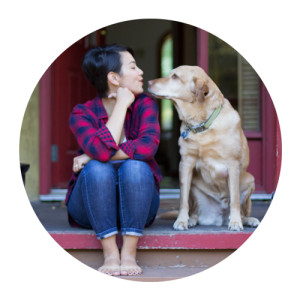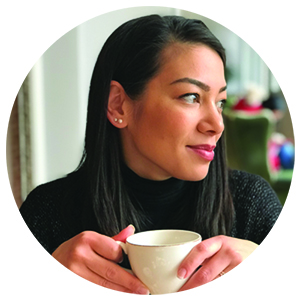This is one of the hardest posts I have had to write. This is in part because it addresses some of the people who are closest to me and I know love Ella deeply. I know that in them using the language they do, they are not saying that they think any less of Ella, nor are they saying that they don’t believe in Ella’s person separate from her diagnosis but here it is…
Ella is not a Downs kid. She is not a Down Syndrome Child and she is not downsy.
She is a child with Down Syndrome.
Down Syndrome does not define her. It is not who she is.
She is Ella. She is a bright, vivacious, caring, determined and charismatic little girl who doesn’t even know she has Down Syndrome.
I know what you are thinking – isn’t it a moot point? Sure, it might seem like that but please know that every time you say it, I cringe inside. Why? Because this type of language only feeds the stereotypes that we are trying so desperately to dissipate. Individuals with disabilities are so much more than their challenges and by using language like Disabled Child, Handicapped kid or Downsy, you overlook the fact that he or she is first a person, a human, an individual – just like you or me. It also fosters a tone of “less-than” and “different” when the reality is, these individuals are more alike than different. You don’t call me Chinese Krista or Socially-awkward Krista. I am just Krista – those other attributes are just perks of who I am.
People-first Language
People First Language is about respect and dignity. It puts the person before the condition. It honours the Golden Rule, do unto others as you would have them do unto you. Here, let me help you.
Instead of saying: A Downs kid
Say: A child with Down Syndrome
Instead of saying: Mentally retarded
Say: Cognitive disability
Instead of saying: Autistic kid
Say: A child with Autism
Post-edit: (I have since been informed that some people with Autism actually prefer to be called Autistic)
Instead of saying: Joe is mentally ill
Say: Joe has a mental illness
Give Ella and other’s with varying challenges the opportunity to define themselves. Don’t do it for them. Together we can grow positive attitudes towards disabilities and the beautiful diversity that accompanies them.
















16 Comments
Krista,
Amen!!! Kadi is first Kadi. Bubbly, outgoing, crazy and fun. And then after those thing is is a hearing impaired child. Or a child with diabetes. But those things don’t define her.
It’s worth noting that there are many people in the autism community who find person-first language offensive, and prefer “autistic”.
Here’s one explanation: http://adiaryofamom.com/2012/07/07/person-first/
This stuff is hard. And you can’t please everyone. But I wouldn’t correct anyone for saying “autistic”.
It is so hard. This was brought to my attention by somebody else – I didn’t realize it was a preference…as I said to them on FB, I have lots of feelings surrounding this but need to take time to articulate them and do a bit more research.
Thanks for the link Cate – an interesting discussion. You can refer to my reply on Kmarie’s comment.
Yes, I met Ella and her brother, with her gramps Wayne & Gram Karen, she is a very beautiful little girl with a lot of people who love her. Isn’t she
Fortunate !!! Your writing is awesome, very well done. Hugs,
Connie
Thank you so much Connie and I am so glad you had a chance to meet Ella. Thank you for commenting!
Isn’t this really where inclusiveness begins? Well spoken!! Thank you for being an articulate advocate!
Thank you for these eloquent words. Its crystal clear to me, and needs to be shared amongst everyone. As mothers we have a bit a vantage point in getting it but that also gives us the clear vision and strength to send the message out there. 100% on point !!
Thanks Jennifer!
Your a wonderful Mom who shows the sides of your daughter that many oversee. Ella is beautiful and I wonder how she is growing and how you see yourself or Ben in her. Is she as creative as you two are or does she sound like you. I see how she looks much like Jacob and that it is not hard to see them as siblings – blonde hair et al. We need to hear how to be more more sensitive to the hearts of those that are living differently from ourselves. I remember when I was going to high school that there was a boy that had Epileptic episodes and my sister always walked with him and that she was always with him if he fell down. Made me so proud of her. She modeled something for me – to care extra care of those who need it does not mean that they are in anyway less valuable.
Such a valuable lesson. Thank you for sharing Sonja.
Language is important and as I have learned in my own journey – its not that most people are trying to be rude but just are not immersed in the neurodiverse community to learn the etiquette or language of preference. As said above- autistic is preferred for most autistics themselves (although the parents of Autistics prefer FPL- but us autistics ourselves prefer autistic:) Here is a link about the latest Sesame Street fiasco and it focus on PFL for autistics here: http://eisforerin.com/2015/10/23/not-in-love-with-julia/
“Throughout all of their material, they use “person first language” or PFL (person with autism, so-and-so has autism) rather than “identity first language” or IFL (autistic person, so-and-so is autistic) despite the fact that most autistic people prefer IFL. With that, they didn’t even attempt balance. PFL happens to be a total deal breaker for me. I can’t imagine ever telling my kids that I have autism or you have autism, because in that language, it sounds like I have a disease or a disorder, which I do not. I am autistic, which is the way I am and the way I experience the world. Even if I could swallow PFL, there was plenty else that bothered me throughout the Sesame Street site. I’m going piece by piece to explain exactly what the problems are because I know that the uninitiated might not see what is “wrong” with this stuff at first glance, but I hope that if you are one of those, after reading this you’ll consider another point of view.”
I understand how in most communities PFL is preferred. I think language should be based on what the individual person prefers- or for children who can not ask what they want yet- what their parents prefer- until they are old enough to decide themselves. I am autistic and prefer to write about myself this way to those I feel comphy with. I agree that we should not define ourselves, yet I also do not shy away from calling myself a woman, or wife, or any other descriptor which I view autistic the same as. I do love that you are calling for respectful dialogue and individual respect. Thank you for your activism:)
I see what she is saying in that Autism is part of her identity but I feel that she is implying that those of us that use PFL are “uninitiated” (I read as ignorant) but that is also a huge difference between people with autism (or autistics) and people with Down Syndrome. Individuals with DS as well as parents of children with DS are constantly striving to help people see beyond the fact that they have Down Syndrome “See the Ability” is the slogan of the CDSS. “More alike than different” These words are to help people recognize that they have a personality that is present not because of their chromosome count. Then again, this could be because Down Syndrome is a visible disability – society naturally judges people based on their appearance and their ability to vocally express themselves. I think it would be an interesting study to research how individuals with disabilities perceive themselves, as well as how the people around them perceive them, along with how the individual would prefer others to perceive them – specifically, Autism vs. DS
Yes- she is speaking stricly to autistics and their families i think:) I agree that the terminology and manifestations are vastly different between Autism and DS..( the one thing we do share is sensory processing information I think but sociability alone is vastly different)
I do think that its a good question to ask people…and I completely would respect your preference for PFL. I guess in the autism community we prefer to see our individuality and the gifts that it brings.
I agree that its also very important to see ability and the ableism movement is just beginning. I feel ableism has a long way to go into the future and many times I run into ableistic comments thrown my way. It also hard with Dyspraxia too and the ableistic mindsets our culture has for achievements but that is a whole other story and societal context. I think, perhaps, any time someone says their preferences it can come across to the “uninitiated” as condescending or such. I can see how she would come across that way but I don’t think its meant to be…but often any time a preference is stated ( however nicely) it can come across that way maybe?:)
Anyway, society judges for sure on appearance and especially on presentation along with social skills and achievements ( dance, tests, math scores, ect. ect.)
For myself, I perceive myself as autistic among many other things. I also know others perceive me very differently depending on relationship and I’m ok with that but I have a really tough time with ableism- I definitely agree with you on that account:)
oh and P.S…it not a deal breaker for me. That sentence rubbed me wrong. I do think it’s an important conversation but most people simply do not know…also, it takes many conversations for understanding:) I will honour your choice of PFL ( if I don’t in moments just gently re jog my memory) and I would love it if you honoured my IFL choice for myself and kids:)
Here are a few additional links for your research- I do realize that the autistic community is the exception rather than the rule for PFL verus IFL . I guess respectful conversation usually comes from having a close relationship with loving dialogue in most cases…It is a learning curb:)
http://www.autismacceptancemonth.com/wp-content/uploads/2014/03/AAM-Identity-First-Language.pdf
http://autismmythbusters.com/general-public/autistic-vs-people-with-autism/jim-sinclair-why-i-dislike-person-first-language/
http://autisticadvocacy.org/home/about-asan/identity-first-language/ ( this is the most comprehensive post about this topic regarding autism with tons of links on the bottom:)